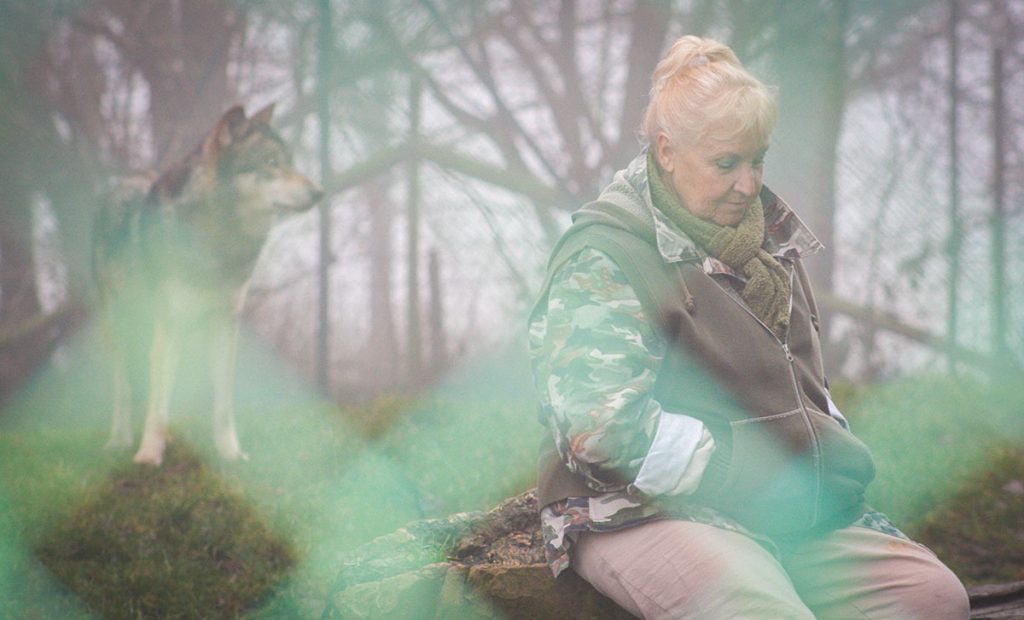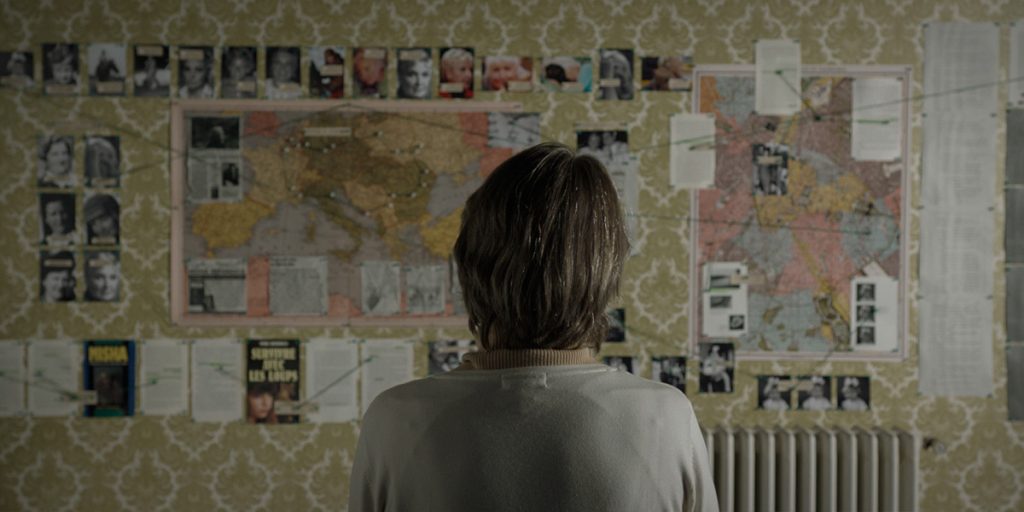From a fable-like story of survival and resilience to a shocking exploration of discovery and deceit, Misha And The Wolves is a wild ride.
The feature-length documentary, Misha And The Wolves tells the tale of Misha Defonseca and her awe-inspiring story of life as a hidden Jewish child in Nazi-occupied Belgium. Misha tells of how, at just seven years old, she escaped her adoptive catholic family in search of her Jewish parents who had been deported by German forces. Young Misha walked cross-country for months, through the battlefields of war-torn Europe, in the hope of being reunited with her family. And just as you think it can’t get any more surreal, we find out how Misha survived through the company of wolves who protected her during her journey. Yep, wolves.
It all sounds so unbelievable, doesn’t it? How could a child survive such a thing? Short answer: she didn’t. Misha was a straight-up fraud. Told through the eyes of those who knew her (or at least thought they did), particularly Jane Daniel, the publisher who brought Misha’s tale into the spotlight, the film takes audiences on the journey to the truth of Misha Defonseca, unearthing immeasurable deception and greed.
From a tale told in a Synagogue, to a book deal, to a feature film adaption, Misha’s story took the world by storm, (and I mean the whole world: this woman even convinced Oprah). But after the relationship soured between Misha and her publisher, a messy lawsuit left Jane Daniel millions in debt and with a shattered reputation. Spurred on by anger, Daniel, publisher turned detective, began her quest to investigate the inconsistencies that were becoming clear in Misha’s story. With the help of Evelyne Haendel, a Belgian genealogist, Daniel uncovered the truth of heroic hidden child Misha Defonseca, and (spoiler alert) she isn’t even Jewish, nor was she a hidden child.
Evelyne really stood out to me in the film, with her sincerity and touching testimony. A hidden child herself who lost both parents in the camps, for Evelyne, this story is a personal one. After uncovering the reality that Misha, or Monique (her actual name), has been deceiving the world for years, and making a lot of money out of it, Evelyne reflected on how she felt. Where vehement anger and disgust would have been more than justified, Evelyne was calm, clearly in pain but quietly so. She said how ‘she felt it for all the hidden children, for all the parents, for her parents, and for all the Jewish community’. After all the unbelievable twists and turns of a tale that could have been (and was) a movie script, Evelyne’s raw emotion allows the reality of the story to really hit home, and honestly, it’s heartbreaking.

The film itself is very well shot. Underpinned by creative production and just enough drama, Misha And The Wolves is as gripping as a soap opera without disrespecting the incredibly sensitive subject matter. Audiences are introduced to players in this story by their function in the narrative: Jane Daniel is titled ‘The Publisher’, Pat Cunningham is ‘The Neighbour’, Evelyne Haendel is ‘The Genealogist’. Through this clever production, audiences are unconsciously brought into Misha’s fictional world, where truth is lost to fantasy and real people serve as characters. We are duped along with the rest of the world which may, in part, explain the public reaction to the scandal.
When the hoax was revealed, fans around the world tried to favour a redemptive narrative, that Misha was, in her own way a Holocaust survivor too, and that she in part truly believed her story and used it as a way of coping. Misha grew up in a catholic household just outside of Brussels and was known in childhood as ‘the traitor’s daughter’ after her father gave up names of Belgian resistance fighters under Gestapo interrogation. As you can imagine, life wasn’t exactly a picnic. What the film really sheds light on, is whether or not our desire to understand and excuse Misha’s behaviour is borne simply out of a desire to not have been deceived. Holocaust historian Debora Dwork discusses in the film how we may try to see Misha in a redemptive light, as a survivor in her own way, to make the whole situation less uncomfortable. We’ve come to understand the Holocaust as one of the darkest moments in human history, and to question the credibility of a survivor seems so unfathomable, that to believe is frankly the least we can do. Dwork challenges this with the notion that we have a duty to question as much as we have a duty to believe, that ‘the danger of believing everything puts history and the historical reality of genuine survivors at risk’.
Misha And The Wolves raises important questions on uncomfortable subjects with the forthright determination they deserve, all without sacrificing cinematic artistry or genuine entertainment. This film made me realise something, and perhaps you will too: that we often keep uncomfortable, devastating subjects at a distance, especially if we feel we have no connection or right to an opinion, and that in itself is damaging. Subjects like the holocaust should be embraced out of respect and protection. Yes, Misha was perhaps a ‘victim and a villain,’ but assuming the identity of a hidden child, appropriating a trauma she had never experienced, cannot be seen as redemptive or understandable, even though it would probably make us feel better. For all the hidden children, for the parents, and for the entire Jewish community, their story must remain their own.
Misha and the Wolves opens in cinemas in the UK & Ireland on September 3, 2021.

